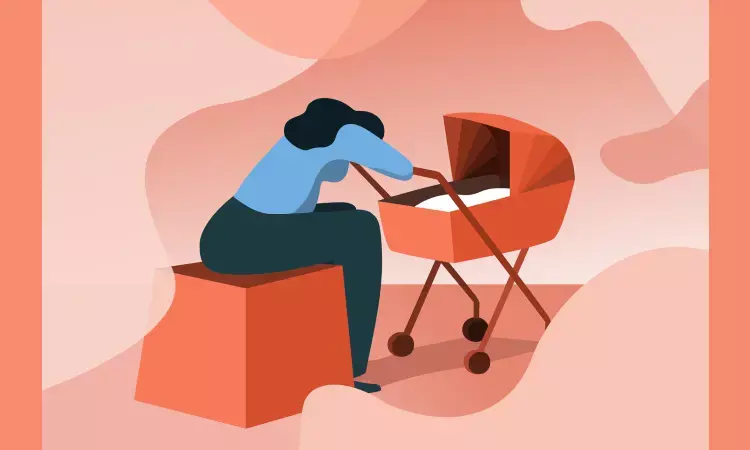- Home
- Medical news & Guidelines
- Anesthesiology
- Cardiology and CTVS
- Critical Care
- Dentistry
- Dermatology
- Diabetes and Endocrinology
- ENT
- Gastroenterology
- Medicine
- Nephrology
- Neurology
- Obstretics-Gynaecology
- Oncology
- Ophthalmology
- Orthopaedics
- Pediatrics-Neonatology
- Psychiatry
- Pulmonology
- Radiology
- Surgery
- Urology
- Laboratory Medicine
- Diet
- Nursing
- Paramedical
- Physiotherapy
- Health news
- Fact Check
- Bone Health Fact Check
- Brain Health Fact Check
- Cancer Related Fact Check
- Child Care Fact Check
- Dental and oral health fact check
- Diabetes and metabolic health fact check
- Diet and Nutrition Fact Check
- Eye and ENT Care Fact Check
- Fitness fact check
- Gut health fact check
- Heart health fact check
- Kidney health fact check
- Medical education fact check
- Men's health fact check
- Respiratory fact check
- Skin and hair care fact check
- Vaccine and Immunization fact check
- Women's health fact check
- AYUSH
- State News
- Andaman and Nicobar Islands
- Andhra Pradesh
- Arunachal Pradesh
- Assam
- Bihar
- Chandigarh
- Chattisgarh
- Dadra and Nagar Haveli
- Daman and Diu
- Delhi
- Goa
- Gujarat
- Haryana
- Himachal Pradesh
- Jammu & Kashmir
- Jharkhand
- Karnataka
- Kerala
- Ladakh
- Lakshadweep
- Madhya Pradesh
- Maharashtra
- Manipur
- Meghalaya
- Mizoram
- Nagaland
- Odisha
- Puducherry
- Punjab
- Rajasthan
- Sikkim
- Tamil Nadu
- Telangana
- Tripura
- Uttar Pradesh
- Uttrakhand
- West Bengal
- Medical Education
- Industry
Treating moms with postpartum depression tied to healthy changes in babies' brains

New research from McMaster University has found that psychiatric help for mothers with postpartum depression results in healthy changes in the brains of their babies.
The study, published in the journal Depression and Anxiety this week, found treating mothers who had postpartum depression with cognitive behavioural therapy (CBT) not only helped the moms, but resulted in adaptive changes in the brains and behaviour of their infants.
More specifically, after the mothers' treatment, their infants showed healthy changes in their nervous and cardiovascular systems, and they were observed to better regulate their behaviours and emotions by both mothers and fathers.
"In fact, we found that after their moms were treated that their infant's brain activity normalized to the levels seen in our healthy infants," said Ryan Van Lieshout, senior author of the study, a psychiatrist, and associate professor of psychiatry and behavioural neuroscience at McMaster's Michael G. DeGroote School of Medicine.
He added that it is well-known that the children of women with postpartum depression have changes in the functioning of their brains that make it more likely that they will develop emotional and behavioural problems later in life. However, it had not been known before if treating the mother's postpartum depression could reverse these changes.
"We believe that this is the first time that anyone has shown that treating moms' postpartum depression can lead to healthy changes in the physiology of the brains of their infants, a finding that we think provides a lot of good news," he said.
"This study shows that cognitive behavioural therapy, a treatment that is short, cost-effective and preferred by women, could potentially reduce the intergenerational transmission of risk from mother to child."
For the study 40 infants of women diagnosed with postpartum depression were matched with 40 infants of non-depressed mothers on infant age, gender and socioeconomic status. The mothers with postpartum depression received nine weeks of group CBT. The infants were all tested before the treatment and nine weeks later, including a questionnaire on the infant behaviour completed by the mother and her partner.
The study was supported by the global Brain and Behavior Research Foundation based in the U.S
Hina Zahid Joined Medical Dialogue in 2017 with a passion to work as a Reporter. She coordinates with various national and international journals and association and covers all the stories related to Medical guidelines, Medical Journals, rare medical surgeries as well as all the updates in the medical field. Email: editorial@medicaldialogues.in. Contact no. 011-43720751
Dr Kamal Kant Kohli-MBBS, DTCD- a chest specialist with more than 30 years of practice and a flair for writing clinical articles, Dr Kamal Kant Kohli joined Medical Dialogues as a Chief Editor of Medical News. Besides writing articles, as an editor, he proofreads and verifies all the medical content published on Medical Dialogues including those coming from journals, studies,medical conferences,guidelines etc. Email: drkohli@medicaldialogues.in. Contact no. 011-43720751


